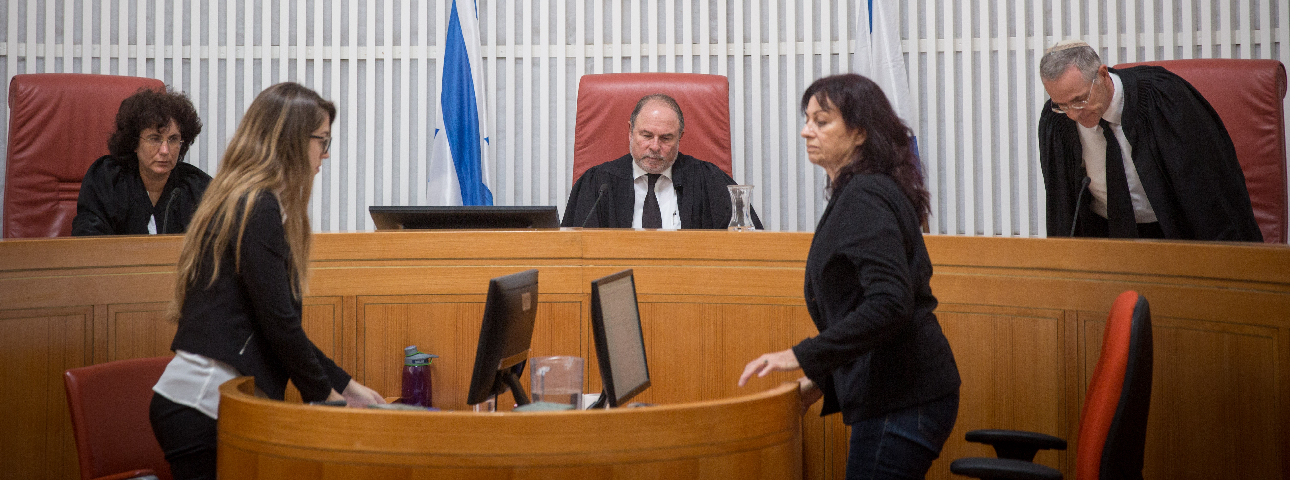Are Judges Objective?
On the link between ‘who’ and ‘what’ in Judicial rulings

Is a judge’s identity relevant to the verdicts and rulings she hands down? Some believe that the judicial task is objective by its very nature, neutral and quasi-scientific. In their view, judges are professionals who have no personal preferences; it is their legal expertise that determines the outcome, and not their identity. Just as compliance with the rules of the game is not influenced by chess players’ personal backgrounds, so too judicial discretion is detached from judges’ religion, gender, nationality, ethnicity, and social affiliations.
This formalistic notion of the essence of the judge’s role simply does not hold water. The recent High Court ruling about the operation of stores in Tel Aviv on Shabbat was a perfect example of the correlation between each justice’s identity and his or her conclusion: the opinions of the two religious justices were appropriate to the typical preferences of the religious sector; their five secular colleagues ruled the other way. Similarly, when other courts heard this case, the judges’ identity as religious or secular was a giveaway as to the outcome.
In the United States, federal judges are nominated by the president, and thus can be labeled, generally speaking, as Republican or Democratic judges. A recent study found that on controversial issues that divide the two parties, the court ruling depends on the identity of the judges who rule on the case. For example, if a woman files suit alleging sex-based discrimination on the job, she will win 75% of the time if all three judges on the Court of Appeals panel hearing the case are Democrats; but if all three are Republicans, she will win only 31% of the time. Here the “who” has a strong influence on the “what”.
The 2000 presidential election between Al Gore and George W. Bush hinged on the interpretation of a technical point of Florida election law. The US Supreme Court, the best in the world, was split five to four. All five justices whose opinion favored Bush were Republicans; three of the four whose opinion favored Gore were Democrats. If this is the situation that prevails when addressing seemingly technical matters, how much more pertinent do such ideological affiliations become when ruling on the balance between competing values that are a matter of bitter controversy for society at large, such as those frequently addressed by the Supreme Court in Jerusalem.
It is important to make clear that judges do not rule according to their individual worldviews. In fact, they are subject to broad objective limitations that restrict their discretion. They must operate within a defined system—a specific law, accepted principles of legal interpretation, judicial precedents, cultural context, and an internal language—that establishes significant boundaries around their freedom of choice. Nevertheless, even within these objective limits, the exercise of judicial discretion in difficult cases is ultimately subjective.
Nothing in the above should be seen as justifying the politicization of the system of judicial appointments. Indeed, politicization would reduce the public’s trust in the Supreme Court (today 55%) to the craterous level of faith it has in the Knesset (about 25%). Nor should judges be appointed on a sectoral basis. Seats on the bench that are “reserved” for members of the several tribes may fill an important symbolic function, but they cannot provide an answer to the genuine challenge of how the courts function in a multicultural society in which there are many identities. The appointment of sectoral judges may be appropriate for a hegemonic society that allots a few positions for representatives of marginal groups. That is how Israel used to be. Today, our society is heterogeneous and there is no clear line between center and periphery. This makes it hard to accept the hierarchical order alluded to by the idea of judges being nominated in order to represent minorities.
What we need is an ensemble of judges with diverse backgrounds, who, along with legal excellence, also possess—as their most important trait of all—the ability to evince empathy and understanding for identities other than their own. We need judges who can intuit the precious treasures of the cultural other and assign them due weight when they shape the shared context of life in Israel. Furthermore, they must use their judgment out of a commitment to forging a cultural coalition that is sensitive to the minority groups in the country. This does not require a religious judge, an ultra-Orthodox judge, an Arab judge, or a settler judge.
What we need are judges whose heart is attuned to the key elements of the Israeli collage that provide the country with its unifying commonalties.
This piece was originally published in the Jerusalem Report
